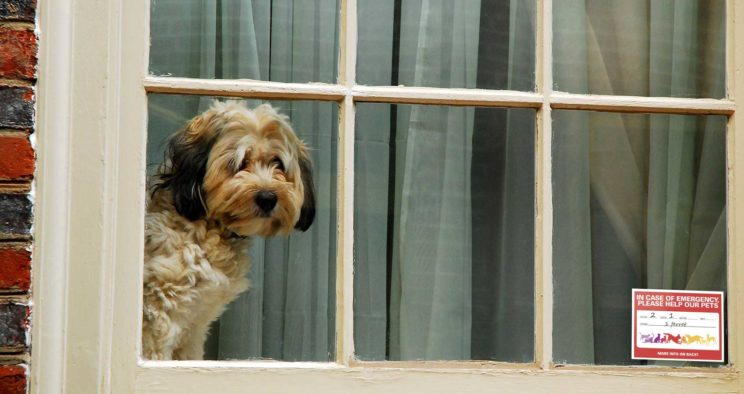
On Wednesday, New Hampshire lawmakers will vote on a historic bill to ban housing discrimination for families that include a dog, cat, or other animal companion. A copy of my letter, on behalf of the No Kill Advocacy Center:
Hon. Marjorie Smith, Chair, and Members of the Judiciary Committee:
On behalf of the New Hampshire members and supporters of the No Kill Advocacy Center, we are writing to urge a Yes vote on HB 1391, which would ban housing discrimination for families that include an animal companion. Roughly 65% of households have a pet. As such, HB 1391 is good public policy, has bipartisan appeal, and is popular with voters. It is also good for landlords, animals, other tenants, and business.
HB 1391 is good for families: Landlord-imposed pet restrictions in the United States are widespread: “In a nationwide survey of landlords, approximately 47% of rental housing did not allow pets and only 9% of pet-friendly units allowed pets without limitations on type or size. Large dogs were welcome in only 11% of rental housing.” (When Fido is Family: How Landlord-Imposed Pet Bans Restrict Access to Housing, Columbia Law Review.) As a result, about 20% of relinquishments to shelters involve housing issues and the problem is getting worse. With rising housing costs and thus the percentage of people who rent (vs. own), shelters are reporting an increased number of people surrendering animals because they can’t find pet-friendly housing. People should not have to choose between losing a family member or losing their home. (America’s Rental Housing: Expanding Options for Diverse and Growing Demand, Joint Center for Housing Studies at Harvard University.)
HB 1391 is good for landlords: A study of landlords who allowed companion animals showed that concerns about damage were easily addressed through a pet damage deposit and reasonable screening and resulted in fewer vacancies and longer-term tenants (thus putting more money in their pockets). The study also found that when animals do cause damage (and most do not), it averaged far less than the average pet deposit. (Companion Animal Renters Study: The Market for Rental Housing for People with Pets, Firepaw.) In addition to a pet deposit, moreover, the bill provides additional protections for landlords such as vaccination, sterilization, rules against noise and sanitation and to enhance safety, and protection against civil liability. (See HB 1391, II(a)-(d).)
HB 1391 is good for animals: HB 1391 will reduce the number of animals surrendered to pounds and killed and increase the number of animals who get adopted. That not only saves lives, it reduces municipal costs and increases municipal revenues (Animal shelter says housing woes mean more pets surrendered, Associated Press.)
HB 1391 is good for all tenants: Even tenants who don’t have and don’t necessarily want an animal companion of their own are overwhelmingly in support of allowing animals in the buildings in which they reside. (‘Simply to be let in’: opening the doors to lower-income older adults and their companion animals, Journal of Public Health.)
HB 1391 is good for public health: Animal companions not only improve cardiovascular health and reduce feelings of loneliness, but a University of Denver study found broader impacts on public health and social cohesion, including increased civic engagement and “perceptions of neighborhood friendliness.” (Legislating Components of a Humane City: The Economic Impacts of the Austin, Texas “No Kill” Resolution, University of Denver.)
HB 1391 is good for business: Americans spent over $70 billion on their animals companions last year, making it the seventh largest sector of the retail economy (and grew at a rate 50% faster than the overall retail economy). HB 1391 would increase the amount of spending on animal companions benefiting local merchants, increasing sales tax revenues, and improving the overall economy. (Americans Are Spending More on Pets Than Ever Before: $72 Billion, American Pet Products Association. See also Legislating Components of a Humane City: The Economic Impacts of the Austin, Texas “No Kill” Resolution, University of Denver.)
Finally, protections of this nature are not unprecedented. In addition to federal law which bans housing discrimination for people with children, owners of properties that are designated for the elderly or handicapped persons and are either subsidized or insured by the U.S. Department of Housing & Urban Development cannot prohibit residents from living with a pet. Reasonable health and safety rules and a pet deposit which “may not exceed $300” are allowed. HB 1391 would merely expand on these reasonable provisions.
Thank you for your consideration.
Very truly yours,
Nathan J. Winograd
————-
Have a comment? Join the discussion by clicking here.